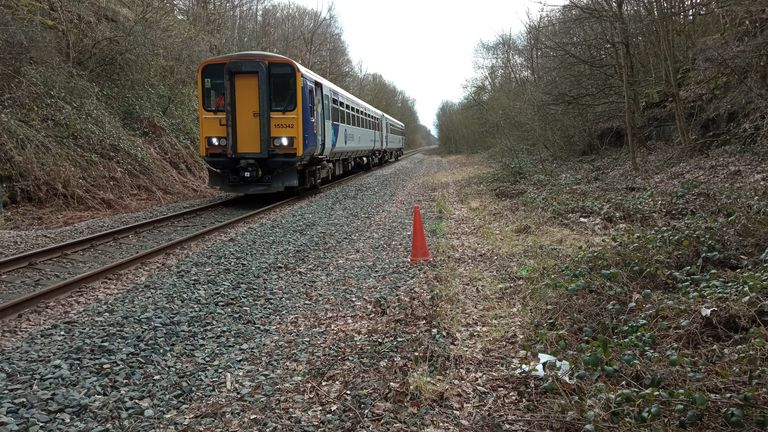Rail fares to rise by 3.8% in March in biggest increase since 2013
Rail fares are to rise by 3.8% in March, the Department for Transport (DfT) has announced.
It is the biggest increase for almost a decade, and has been described by Labour as “a nightmare before Christmas for millions of passengers”.
The Transport Salaried Staffs’ Association union accused the government of being “hell-bent on discouraging rail travel”.
But rail minister Chris Heaton-Harris said fares were being capped “in line with inflation” and the hike in prices would allow further investment in the railways.
Before the pandemic, fares were raised each January.
The new increase – based on the rate of retail price inflation (RPI) in July – is the largest since 2013, according to figures from industry body the Rail Delivery Group (RDG).
“Next year’s rail fare rise will be 3.8%, below current retail price inflation of 7.1 per cent,” the DfT said.
It added: “The government will not increase fares by RPI plus 1%, as it did in 2021.”
The DfT said the rise would help meet the costs of keeping services running during the pandemic and “pay for service increases and improvements on many lines which began this week”.
In addition, the Book with Confidence scheme is being extended until the end of March.
It allows passengers to change their travel plans right up until the evening before departure without being charged a fee, or cancel trains completely and receive rail vouchers as refunds.
In Scotland, the increase will be implemented on 24 January, while the Welsh government is yet to announce its plans.
Rail fares in Northern Ireland are set by state-owned operator Translink which does not use RPI.
Mr Heaton-Harris said: “Delaying the changes until March 2022 offers people the chance to save money by renewing their fares at last year’s price.
“That includes the 100,000 people who are already making savings with cheaper and more convenient flexible season tickets.
“We’re driving ahead with the reforms in our Plan for Rail, creating a more passenger-focused railway that delivers a truly first-class service for everyone.”
Shadow transport secretary Louise Haigh said: “Families already facing soaring taxes and bills will now be clobbered with an eye-watering rise in the cost of the daily commute.”
Andy Bagnall, director general of the RDG, said the decision to “hold fares down in line with July’s inflation is welcome compared to last year’s above inflation increase and the rate of inflation right now”.
He added: “It is important that fares are set at a level that will encourage more people to travel by train in the future, helping to support a clean and fair recovery from the pandemic.”
For all the latest business News Click Here


